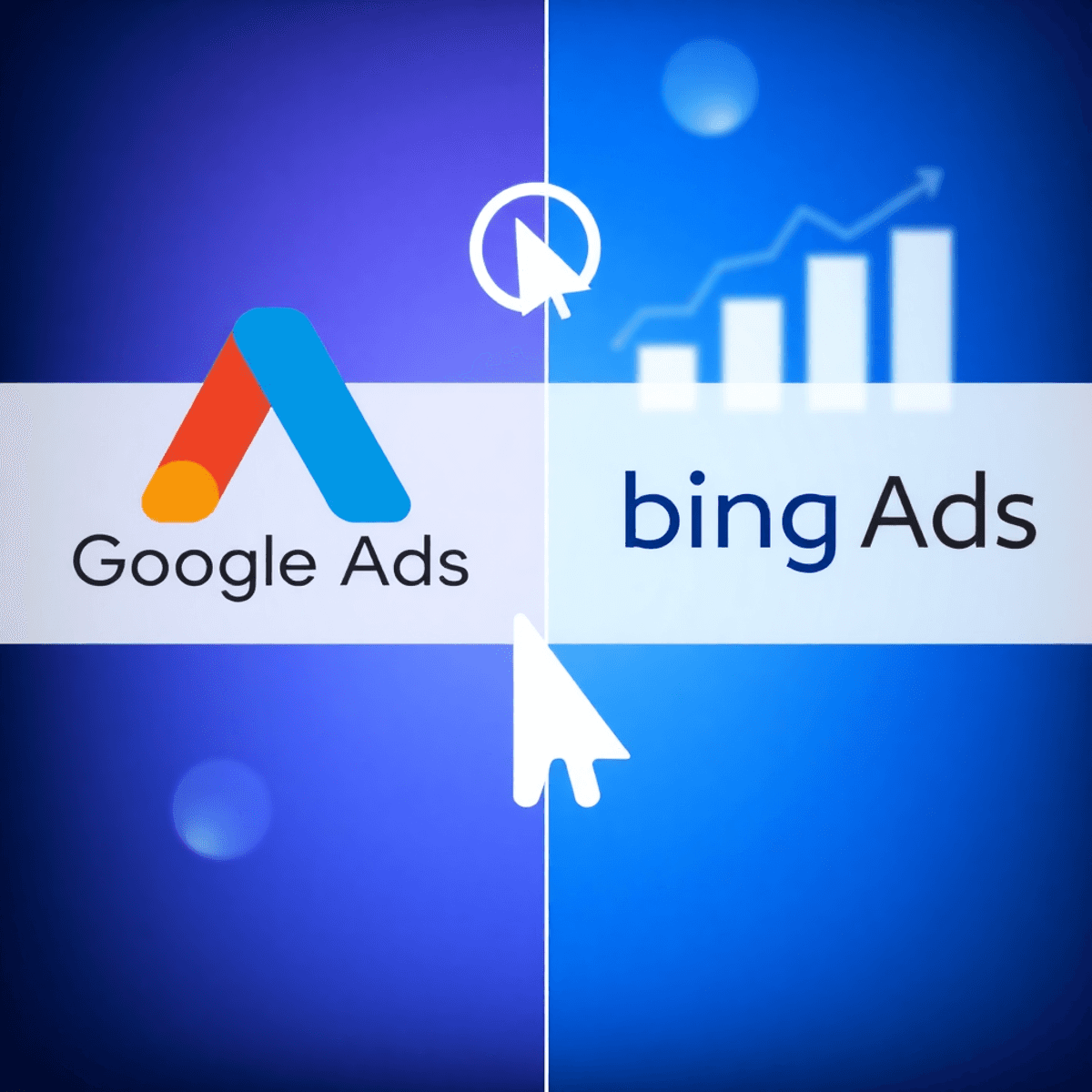Pay-per-click advertising is a crucial part of digital marketing success, yet many businesses unknowingly waste significant portions of their advertising budget on irrelevant clicks. This is where negative keywords become invaluable – they act as protective filters, preventing your ads from appearing in searches unrelated to your products or services.
Negative keywords serve as strategic barriers in PPC campaigns, blocking your advertisements from displaying when users search for specific terms. For instance, a luxury watch retailer might add ‘cheap’ or ‘free’ as negative keywords to avoid attracting users seeking budget options.
The implementation of negative keywords delivers two primary benefits:
- Precise targeting: Your ads reach users with genuine purchase intent
- Cost efficiency: Your budget focuses exclusively on relevant potential customers
At Alloy Marketing, we’ve spent over 11 years refining PPC strategies for businesses across diverse sectors. Our team’s combined 50+ years of experience has consistently demonstrated that proper negative keyword management forms the foundation of successful PPC campaigns.
We specialise in creating data-driven PPC strategies that maximise return on investment through meticulous keyword management. Our approach combines thorough market analysis with continuous campaign optimisation, ensuring your advertising budget works effectively to generate qualified leads and drive sales growth.
Moreover, our expertise extends beyond PPC. We also provide comprehensive SEO services and email marketing solutions, helping businesses thrive in their respective industries.
Understanding the Role of Negative Keywords in PPC Campaigns
Negative keywords are important tools in PPC campaigns. They work by blocking your ads from showing up in searches that include certain words. This helps keep your ad impressions relevant and high-quality, while also saving money by avoiding clicks from people who aren’t interested.
Example: The Importance of Negative Keywords for a Luxury Watch Retailer
Let’s say there’s a luxury watch retailer who wants to advertise their products using the keyword “designer watches”. If they don’t use negative keywords effectively, their ads might show up for searches like:
- “fake designer watches”
- “cheap designer watch replicas”
- “free designer watch samples”
These searches are not relevant to their business and could result in wasted advertising budget from clicks that won’t lead to sales. Additionally, if their ads appear alongside terms like “fake” or “cheap”, it could harm their brand reputation by creating unwanted associations.
How Negative Keywords Impact Ad Performance
Negative keywords have a direct impact on two important metrics in PPC campaigns:
- Quality Score: This is a rating given by Google based on the relevance of your ads, keywords and landing pages. By using negative keywords to filter out irrelevant searches, you can improve your Quality Score.
- Click-Through Rate (CTR): The CTR measures how often people click on your ads after seeing them. When you use negative keywords effectively, your ads will only be shown to users who are genuinely interested in what you’re offering, leading to a higher CTR.
Research has shown that when negative keywords are implemented correctly, they can increase CTR by 10-30% and lower cost per click by improving Quality Scores.
The Difference Between Positive and Negative Keywords
Positive and negative keywords serve different purposes in a PPC campaign:
Positive Keywords
- These are the keywords that you want to target and trigger your ads.
- Positive keywords define when your ads should appear based on the search queries of potential customers.
- They help you reach specific audience interests and drive qualified traffic to your website.
Negative Keywords
- Unlike positive keywords, negative keywords prevent your ads from showing up for certain searches.
- They act as protective barriers by filtering out irrelevant searches that are not aligned with your business goals.
- By using negative keywords strategically, you can safeguard your campaign budget from unnecessary spending on unqualified clicks.
Creating a Balanced PPC Strategy
In order to create an effective PPC strategy, it’s important to have a balance between positive and negative keywords:
- Expand Reach with Positive Keywords: Use positive keywords to broaden your reach and attract potential customers who may be interested in your products or services.
- Refine Reach with Negative Keywords: Implement negative keywords to narrow down that reach and ensure that your ads are only shown to users who fit your target audience criteria.
By combining both approaches, you can maximise the efficiency of your campaigns and achieve better results. This way, you’ll be able to deliver relevant ads at the right time at the right place, ultimately increasing return on ad spend through precise targeting.
Implementing Effective Strategies for Adding Negative Keywords to Your Campaigns
Understanding match types is crucial for implementing negative keywords effectively. Each match type serves a specific purpose in filtering unwanted traffic:
1. Broad Match Negative Keywords
- Blocks ads from showing on searches containing your keyword in any order
- Most flexible option for excluding irrelevant traffic
- Example: negative keyword “free” blocks “free samples”, “samples for free”
2. Phrase Match Negative Keywords
- Prevents ads from showing when searches include the exact phrase
- Offers moderate control whilst maintaining reach
- Example: negative keyword “cheap deals” blocks “cheap deals online” but not “deals cheap”
3. Exact Match Negative Keywords
- Blocks specific search terms precisely as entered
- Provides highest level of control
- Example: negative keyword “[free shipping]” only blocks “free shipping”
4. Practical Implementation Tips:
Campaign Level Implementation
- Add universal negative keywords affecting all ad groups
- Block irrelevant industry terms
- Filter competitor brand names
Ad Group Level Implementation
- Apply specific negative keywords to individual ad groups
- Prevent keyword cannibalisation between ad groups
- Target distinct product lines or services
Research-Based Identification:
- Review search term reports weekly
- Analyse customer feedback and complaints
- Study competitor targeting strategies
- Use keyword research tools to identify irrelevant variations
Best Practices:
- Create negative keyword lists for different themes
- Share lists across relevant campaigns
- Document reasoning behind negative keyword choices
- Test impact before implementing broadly
- Regular audit of negative keyword performance
Monitoring Performance and Optimising Your PPC Campaigns with Negative Keywords
Regular monitoring and optimisation are crucial for successful PPC campaign management. Search Term Reports are valuable tools for identifying opportunities to refine your negative keyword strategy and improve campaign performance.
Key Performance Indicators to Monitor:
- Click-through rates (CTR)
- Cost per click (CPC)
- Conversion rates
- Quality Score
- Impression share
- Search term relevance
Analysing Search Term Reports
Search Term Reports reveal actual queries that triggered your ads. This data helps identify:
- Irrelevant search terms consuming budget
- Pattern recognition in poor-performing queries
- Opportunities for new negative keywords
- Potential keyword expansion ideas
Implementing Data-Driven Optimisation
- Weekly Performance Reviews
- Analyse search terms generating clicks but no conversions
- Review high-cost, low-return queries
- Identify seasonal trends affecting performance
- Search Term Pattern Analysis
- Group similar non-converting terms
- Spot common themes in irrelevant clicks
- Track emerging market trends
- Strategic Implementation
- Add negative keywords at campaign or ad group level
- Monitor impact on campaign metrics
- Adjust match types based on performance data
Advanced Optimisation Techniques
Creating negative keyword lists for specific themes helps streamline campaign management:
- Industry-specific irrelevant terms
- Competitor brand names
- Geographic exclusions
- Price-related terms
- Job-seeking queries
Regular performance monitoring combined with strategic negative keyword implementation creates a dynamic optimisation cycle. This systematic approach ensures your campaigns maintain peak efficiency whilst adapting to changing market conditions and search behaviours.
The Benefits of Using Negative Keywords in Your PPC Strategy
Using negative keywords in your PPC campaigns offers significant advantages that directly impact your marketing success. Here are the main benefits of a well-structured negative keyword strategy:
1. Improved Targeting Accuracy
- Better audience targeting by excluding irrelevant search queries
- Higher quality traffic from users genuinely interested in your products/services
- Increased ad relevance leading to improved Quality Scores
2. Significant Cost Savings
- Elimination of wasted spend on unqualified clicks
- Reduced cost per acquisition (CPA) through focused budget allocation
- Protection against click fraud and competitor interference
3. Enhanced Campaign Performance
- Higher click-through rates from qualified prospects
- Increased conversion rates due to better audience alignment
- Better return on ad spend (ROAS) through optimised budget utilisation
4. Strategic Market Positioning
- Clear differentiation from competitors in search results
- Stronger brand alignment through precise audience targeting
- Enhanced visibility for your most valuable search queries
These benefits accumulate over time as your negative keyword list expands and evolves with your campaign data. Regularly refining your negative keyword strategy ensures continuous improvement in campaign effectiveness and ROI.
Conclusion
Negative keywords are often overlooked in PPC management, but they have the power to greatly improve campaign performance. By using them strategically, you can target your ads more effectively, attract the right audience and reduce unnecessary spending.
To succeed in PPC, it’s important to:
- Create detailed lists of negative keywords
- Regularly review search term reports
- Continuously improve your exclusion strategies
- Use the right match types for your keywords
At Alloy Marketing, we have 11 years of experience in digital marketing and a team with over 50 years of combined expertise in creating successful PPC strategies. We can help you take your campaigns to the next level with our professional guidance.
But we don’t just focus on PPC. We also offer services such as CRM setup to enhance customer conversion and satisfaction, as well as Local SEO services to improve your rankings in local search results.
Are you ready to make the most of negative keywords? Whether you choose to implement these strategies on your own or work with Alloy Marketing’s experts, now is the time to unlock your campaign’s full potential. If you need personalized support, our CRM consulting services can streamline your CRM processes and drive better results.
FAQs
What are Negative Keywords and why are they important in PPC campaigns?
Negative Keywords are specific terms that prevent your ads from showing up in irrelevant search queries, thereby enhancing ad targeting precision and managing costs effectively in PPC campaigns.
How do Negative Keywords improve ad relevance and click-through rates (CTR)?
By filtering out irrelevant search terms that trigger ads, Negative Keywords ensure that your ads appear only for relevant searches, which increases ad relevance and boosts click-through rates (CTR).
What match types are available for adding Negative Keywords to PPC campaigns?
Negative Keywords can be added using different match types including broad match, phrase match and exact match, allowing for flexible and precise exclusion of unwanted search terms in your campaigns or ad groups.
How can I identify which Negative Keywords to add to my PPC campaigns?
You can identify relevant Negative Keywords by conducting thorough keyword research and analysing search term reports to find unproductive queries that should be excluded from triggering your ads.
Why is ongoing monitoring and optimization important when using Negative Keywords?
Ongoing monitoring allows you to analyse performance metrics and search term reports regularly, enabling you to refine your Negative Keyword list to continuously reduce wasted spend and enhance campaign profitability.
How can Alloy Marketing assist with optimizing PPC campaigns through Negative Keyword strategies?
Alloy Marketing specializes in PPC optimization and offers expert guidance on implementing effective Negative Keyword strategies, helping you maximize targeting precision, reduce wasted spend and improve overall campaign performance.






